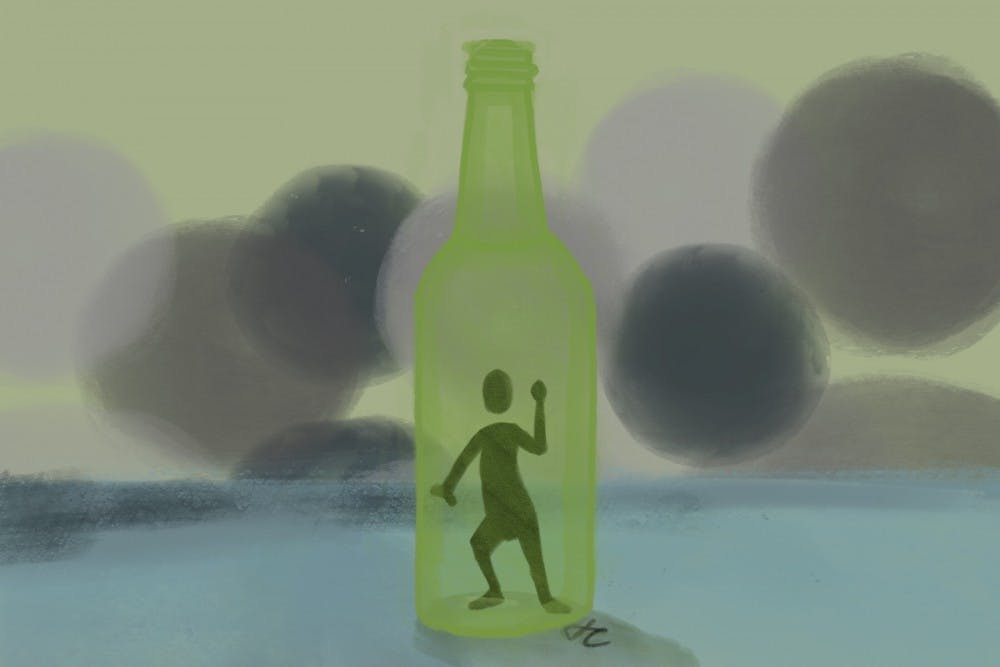The inevitable truth is that college students are in the constant presence of alcohol.
Whether they attempt to seek it out, try to avoid it at all costs or fall somewhere in a fuzzy gray area — at the end of the day, a decision will be made.
Transitioning into adulthood and an independent life in college can be challenging and extremely lonely. People who might not normally seek out parties or alcoholic beverages find themselves in situations in which they are partaking in these events and conforming to the social norm in order to fit in and appeal to their peers.
“There are more arrests that happen at the beginning of the school year, part of the reason being the area police are showing an increased presence in order to curb drinking throughout the whole academic school year," said Karen Moses, Ph.D, director of ASU health and wellness and the AOD (Alcohol and other Drugs) program. "But part of the reason is that it’s a time that students are celebrating for obvious reasons, and we just see more drinking in the early part of the fall semester.”
While drinking can appear to loosen many social inhibitions, the repercussions far outweigh the benefits. In a study at the Harvard T.H. Chan School of Public Health, one in four college students between 1993 and 1997 reported suffering academically and missing classes due to drinking.
In addition, ASU has a strict zero tolerance policy for drinking on campus. The policy mandates that if students are caught under the influence or in possession with alcoholic content they are subject to confiscation and held to state law standards.
Furthermore, should they get caught, this jeopardizes their entire professional career before it even begins.
If a party gets busted, an underaged college student can risk having a criminal charge of Minor in Consumption (MIC), Minor in Possession (MIP) and internal possession of alcohol.
Not only can drinking put students' academic careers at risk and jeopardize their professional careers, but it can severely damage their physical health.
Moses talked about the importance of knowing the damaging and irreversible effects of alcohol on adolescents' brains and bodies.
“One of the things that we worry about particularly is alcohol's effect on the still-growing brain of young adults, so brain function,” said Moses. “It affects every part of your body.”
Many students do not know when to stop drinking. Roughly 20 percent of college students achieve the criteria for an Alcohol Use Disorder (AUD) and alcohol dependence, which can lead to alcoholism later on in life.
This leads many to wonder how to get involved and meet other people without the comfort and familiarity of the party scene.
ASU recently released statistics that stated 40 percent of college students reported not having had an alcoholic beverage in the last 30 days.
The fall 2016 semester showed a total of 98,146 students enrolled at ASU, so the possibilities of meeting new people without the crutch of alcohol are limitless.
College certainly is the time to branch out, make lasting connections and meet new people, but students must be selective about the environment they do it in.
Reach the columnist at hncumber@asu.edu or follow @hncumby on Twitter.
Editor’s note: The opinions presented in this column are the author’s and do not imply any endorsement from The State Press or its editors.Want to join the conversation?
Send an email to opiniondesk.statepress@gmail.com. Keep letters under 500 words and be sure to include your university affiliation. Anonymity will not be granted.Like The State Press on Facebook and follow @statepress on Twitter.




